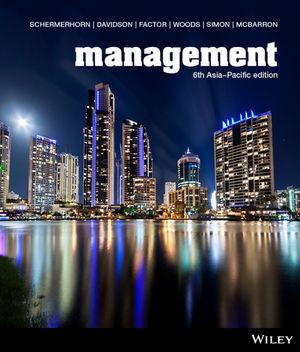At first sight, Singapore might not seem to be a very diverse society. The language of choice
Question:
At first sight, Singapore might not seem to be a very diverse society. The language of choice for politics and business is English, and Chinese people make up more than three‐quarters (76.7 per cent) of the island’s population. The remaining populations are Malay (14 per cent), Indian (7.9 per cent), with a combination of other ethnicities making up the remaining 1.4 per cent. Singapore has attempted to promote a national identity since its independence from Britain in 1965. However, Singapore has four national languages — Mandarin, Malay, Tamil and English.
Coca‐Cola Singapore has 680 employees at its plant in Tuas and, together with its bottler, has 12 different nationalities represented in the company. Hence, it has implemented a diversity workplace strategy in striving for an inclusive culture. Coca‐Cola Singapore defines diversity as ‘(1) respecting individuals, (2) valuing differences and (3) representing our consumers and the markets where we do business’.
On the other hand, an Australian expatriate manager or tourist could be forgiven for thinking that Singapore is ‘just like home’. They would be struck by the plethora of modern buildings and shopping malls, the metropolitan train service and the general first‐world state of the infrastructure, economy and communication systems. In reality, though, there are significant cultural differences between the two societies. For example, the group is more important than the individual in Singapore, there is greater respect for the extended family, Singaporeans do not like losing face, and pay more deference to older people in the workplace. This is a result of Confucianism, which emphasises respect for and obedience to one’s elders. Disagreeing with, or criticising, an older person in a business meeting may lead to a loss of face and destroy the personal relationship — which is the key to doing successful business in Singapore.
Singaporeans will also often rely on non‐verbal signals such as tone of voice, body language and facial expression more than the spoken word. In general, communications are less direct than in Australia. Importantly, Singaporeans want multi‐national companies to demonstrate that they have come to the island for the long‐term, rather than just to make short‐term gains. This would also apply to an Australian manager, not just the company they work for. Singaporeans prefer expatriate managers who learn Mandarin and immerse themselves in the precepts of the host culture. In particular, they are averse to expatriates who come along just for a short time with a view to returning home to a promotion position as quickly as possible. So, an Australian manager on an expatriate assignment in Singapore (or anywhere else, for that matter) needs to understand cultural differences before taking up appointment.
QUESTION
Do you think Singapore really is diverse, or is it still largely a Western state?
Step by Step Answer:

Management
ISBN: 9780730329534
6th Asia Pacific Edition
Authors: Schermerhorn, John, Davidson, Paul, Factor, Aharon, Woods, Peter, Simon, Alan, McBarron, Ellen





